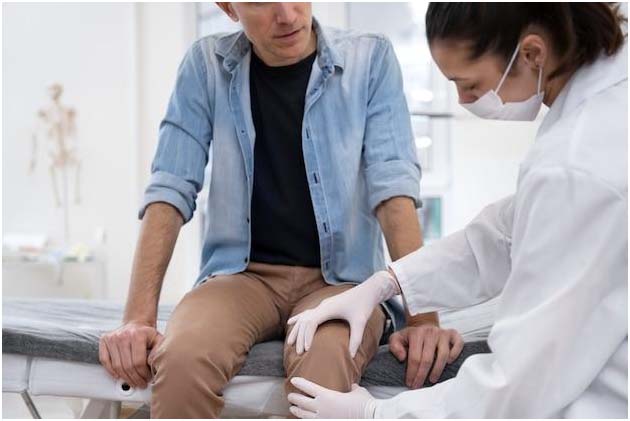
Life is full of suffering, but when you have sore muscles after sleeping or knee or back pain for days, your daily routine might be affected. Our bones, joints, muscles, and ligaments work together to keep us moving, but injuries, aging, or chronic conditions can disrupt the overall mobility of the body. However, when pain and mobility issues prevail, then it becomes essential to get personalized medical help. In all the above-mentioned cases, an orthopedic surgeon can assist you. These medical experts diagnose and treat musculoskeletal problems using surgical or non-surgical procedures.
Here are some of the signs that indicate that you might need to visit an orthopedic surgeon.
1. Consistent Joint or Bone Pain: See an Orthopedic Surgeon
Sometimes, you might have joint or bone pain, which may get worse and stay constant. This ongoing joint pain can decrease quality of life and inhibit range of motion and joint function. If the same is true for you and it does not improve with rest or over-the-counter medication, this could be a sign that professional help from an orthopedic surgeon is needed. Continued pain might indicate issues like arthritis, tendon inflammation, or even stress fractures. An experienced specialist can evaluate your symptoms. They can provide you with the correct diagnosis and recommend treatment plans that may include medication, physical therapy, or other interventions.
2. Swelling and Inflammation Around Joints
If you feel your joints are swollen, red, or warm to the touch, especially after minimal exertion, it’s a clear sign that something is wrong with your joints. This could be due to the inflammation. Inflammation has multiple causes. These causes may include injury, arthritis, or other conditions affecting the musculoskeletal system. Upon finding swelling or redness in your joints, you should immediately consult with an orthopedic surgeon. They can help you monitor the size and duration of the swelling and identify the underlying issues. If something indicates chronic issues, the doctor can start immediate medical procedures for a smoother recovery.
3. Decreased Range of Motion
Sometimes, the problems with the joints and bones get worse without any prominent indications. These underlying issues can make a patient unable to move joints at full capacity. Difficulty in moving can sometimes be a cause of muscle stiffness, swelling, or joint dislocation. No matter what the underlying problem is, if your range of motion is decreased, then it’s time for you to visit an orthopedic surgeon’s office. Orthopedic specialists can assess the range of motion and the issue causing it. Depending on the situation, they can suggest medication or a surgical procedure to help increase your mobility.
4. Frequent Fractures or Sudden Bone Injuries
Some people witness an issue where their bones get fractured, even with minor trips or bumps. If you’re dealing with the same situation, then it means that your bone health is somehow compromised. There are many causes of bone weaknesses, which may include osteoporosis, vitamin deficiencies, or hormonal imbalances. Weaken bones are more likely to be broken with minimal force. In such cases, consulting with an orthopedic surgeon is essential. An orthopedic surgeon can perform bone density scans, recommend dietary changes, or stabilize fractures surgically to avoid long-term issues like misalignment or chronic pain.






